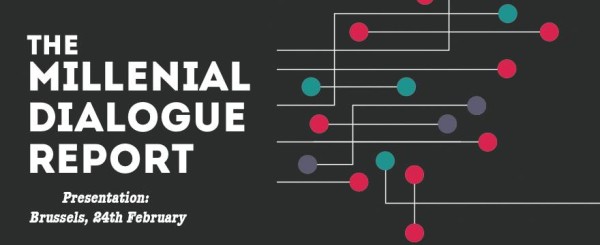In December 2014, the Foundation for European Progressive Studies commissioned Audiencenet to pilot the “Millennial Dialogue” project to engage with and understand better the priorities and values of those aged between 15 and 34, in three selected countries: Italy, Poland and Germany. With the first phase complete, on the 24th of February, FEPS presented the early findings to the policymaking public in Brussels.

As established parties falter when attracting younger voters, some assume that there is a lack of interest in politics among young people, an issue that was reflected in the European Parliament elections in 2014. However, there is evidence of growing activism in non-party political movements and other civil society organisations. As such, there is a gap in the broader understanding of this demographic group among political practitioners and a need to re-engage them. The Millennial Dialogue seeks to address these challenges and provide innovative approaches to engaging with young people.
According to the survey, 83% of the young people in the selected three countries are generally optimistic and happy with their lives, while it was mentioned that Millennials in Poland, Italy and Germany welcome a more multicultural environment than their older counterparts. According to the speakers, Europe’s luminous future needs to focus on youth and more engagement with the young generation.
Additionally, politicians should manage their own social media accounts, according to German, Italian & Polish millennials establishing a 2 way process combining the traditional door to door political campaigns and the innovative one including the social media and the web.
Some excerpts from the survey could be:
- Young generation is highly interested not only in jobs creation and growth but in the healthcare as well.
- Interest in politics: 7% of Polish 15-17 year olds said they were interested in politics. 18% of Germans of the same age showed interest while none of the Italians did.
- Influence of young people: 64% of young Germans think that most politicians largely ignore the views of younger people.
- Gender and sexual politics: 75% of Polish millennials believe in the importance of equality in gender and sexual-orientation in society and feel that politicians have a duty to promote such equality.

This research aims to provide a basis for a comprehensive millennial policy agenda, one that interacts with young people rather than accepting their loss from the political process. One of its core concluding remarks could be that the re-involvement of young people into the political discussion could solve the European political crisis.
